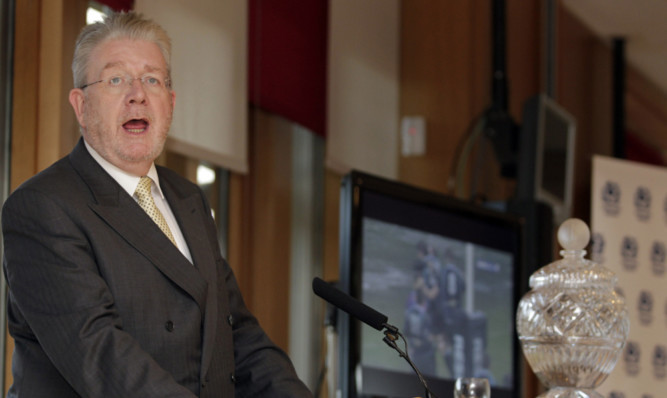One of the main claims of the SNP, and the Yes movement in general, was that it would use Scotland’s wealth to make the country a fairer society. Well, the good news for all those who support such a goal and who wouldn’t? is that the nationalist government at Holyrood can still fulfil this ambition, despite losing the independence argument.
The main reason some communities fail to thrive in our affluent nation is not about a lack of welfare, or a deficit of political empathy, but a dearth of opportunity. The only way to tackle this is through education.
The likes of Tommy Sheridan try to galvanise disappointed “yes” voters by promising them the earth, evoking (bizarrely) the spirit of the miners’ strike in the Eighties. But protest won’t deliver equality to people trapped by deprivation. Education will.
In some bits of Britain, changes in the way schools are run have seen stunning outcomes. In a downtrodden part of Portsmouth, for example, a school which in 2006 produced a 3% pass rate in five key GCSE exams, this year achieved a pass rate of 79%.
At the King Solomon Academy in central London, 93% of 16-year-olds gained five good GCSE passes this year, although three-fifths of pupils come from low income homes.
These are some of the successes of the reforms introduced by Westminster education ministers, first Labour then Conservative, in England since 2000. The move to liberate schools from local authority control, by turning them into academies, has transformed education south of the border.
The picture is mixed but, according to a report in The Economist, academy children’s results have improved faster than those in mainstream schools and the longer schools have been academies, and the more autonomy they have gained, the better they do.
Around two-thirds of England’s non-selective state secondaries are now academies, in charge of their own staffing, curriculum and budgets. Pupils from these schools, hundreds of thousands of them, now have a better chance of escaping their backgrounds and making something of their lives.
Their counterparts in Scotland do not have the same opportunities. And why not? Scotland has long had every conceivable power to control education but a succession of governments and schools ministers has shied away from a radical overhaul.
As a consequence, the gap in attainment between the poorest and richest kids is stark. In Dundee, richer pupils are 10 times more likely to get good grades than poorer ones. In some of the most deprived areas, children are 20 times less likely to do well than those in the leafiest suburbs.
Nicola Sturgeon can do something about this appalling injustice that does not just shame her party, which has governed Scotland since 2007, but shames Scotland.
It is said she will purge her cabinet of tired old ministers; the first to be sacked should be Mike Russell, whose education legacy will be one of neglect.
On no account must she even consider promoting his deputy, Angela Constance, a minister who has made no mark on her department and whose ambitions centre on her own political career rather than the nation’s young.
Unfortunately, there is no obvious candidate to match the visionary Michael Gove, who oversaw reform in England, but his model is there to be copied.
A reasonably competent and courageous (to take on the teaching unions) young minister can surely be found in the SNP ranks.
Ms Sturgeon herself has said in private conversations that she is in favour of ending the local authority stranglehold on schools. Soon she will have no excuse to do nothing.
The vast majority of voters from both sides of the referendum campaign are sick of constitutional talk. They have had enough of process and procrastination; they want a government that governs.
Nowhere is this more urgent than in education. If the SNP is serious about “making our wealth work harder for the people of Scotland” a favourite Yes slogan it has to get to grips with the gravest inequality, a school system that allows only some Scots to prosper.
They have had more than seven years under Alex Salmond to make a difference. Now it’s up to Nicola.
